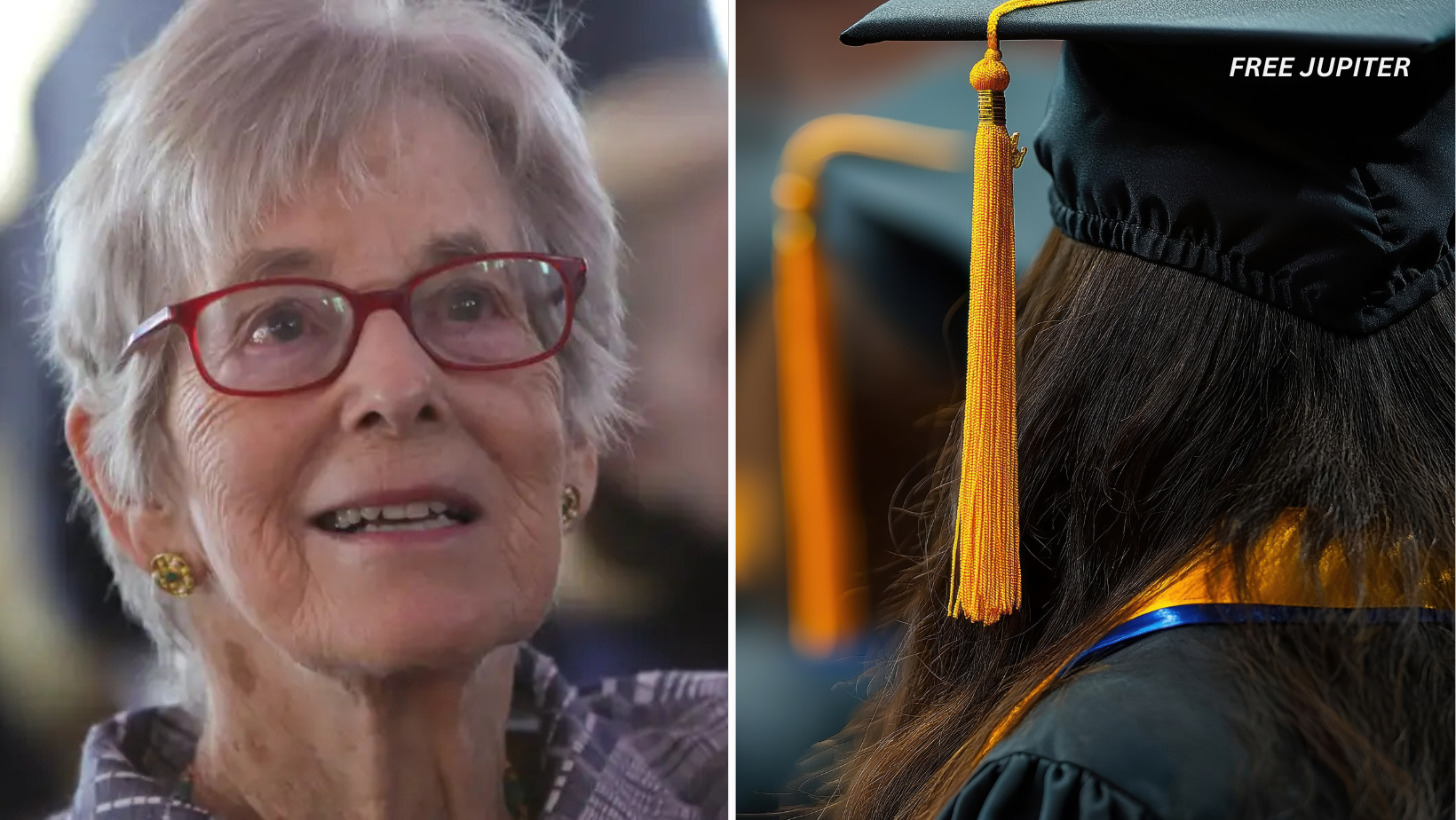Friendly Note: FreeJupiter.com shares general info for curious minds 🌟 Please fact-check all claims—and always check health matters with a professional 💙
In a world where student debt continues to weigh heavily on the shoulders of young people, a 93-year-old woman has offered a rare and inspiring alternative. Ruth Gottesman, a retired professor and former board chair of the Albert Einstein College of Medicine in the Bronx, made headlines by donating a staggering $1 billion to the school. Her gift comes with a powerful promise: no student will ever have to pay tuition again. Not today, not tomorrow—forever.
It’s not just a gift of money. It’s a gift of hope, opportunity, and freedom.
A Life-Changing Contribution That Speaks Volumes
Gottesman’s donation is among the largest ever made to a medical school—or any educational institution, for that matter. And it’s no exaggeration to say that it will change thousands of lives. With medical school tuition soaring past $59,000 per year, many students finish their education drowning in debt. According to the Association of American Medical Colleges, the average debt for a medical student in the U.S. is over $200,000.
This burden often limits where graduates can afford to practice, steering them away from lower-income communities or less lucrative specialties like primary care or pediatrics.
Now imagine what becomes possible when that financial strain disappears. Students can pursue careers based on passion and service, not paychecks. They can choose to work in places like the Bronx—one of the most underserved areas in the country—instead of wealthy hospital systems simply to make ends meet.
Read more: Scientists Say That The Heart Operates On Its Own Largely Independent of the Brain
The Power Behind the Gift: Who Is Ruth Gottesman?
Ruth Gottesman is not a household name. She hasn’t courted the spotlight or built a flashy empire. But she has spent her life in service to education and community. She started working at the Albert Einstein College of Medicine in the 1960s as a learning specialist and eventually led the school’s literacy and learning disability programs. Over the decades, she quietly worked her way up to the board of trustees, always staying committed to student support and healthcare equity.
Her late husband, David “Sandy” Gottesman, was a close friend of billionaire Warren Buffett and an early investor in Berkshire Hathaway. When he passed away in 2022, Ruth inherited a substantial amount of the company’s stock. But instead of hoarding that wealth or passing it solely to her family, she chose to invest in a broader legacy—one that would outlive her and impact generations to come.
She reportedly told the school’s president, “I want to do something transformative.” And she did.
She even made one heartfelt request: don’t name the school after her. She didn’t want her name on the building. She wanted the impact to speak for itself.
Why the Bronx Matters
This isn’t just about medical education—it’s also about justice. The Bronx, while rich in culture and resilience, remains New York City’s poorest borough, where many residents face significant healthcare challenges. Rates of asthma, diabetes, heart disease, and maternal mortality are higher here than in many parts of the country. Access to primary care physicians is limited, and underserved populations often go without the attention and treatment they need.
By choosing a school located in this community, Gottesman is making a bold statement: the future of medicine should be rooted in equity and service—not privilege and exclusivity.
This donation will likely encourage more students from diverse, working-class backgrounds to apply to medical school—people who might otherwise be shut out by cost. And it may also encourage graduates to stay and serve in places like the Bronx after finishing school.
Read more:Signs You Are a Woman Who’s Been Misunderstood Most of Her Life: Research
How the Money Will Work: A Forever Fund
So how exactly does a $1 billion donation make tuition free forever?
The money will be placed in what’s called an endowment fund. Instead of spending the donation all at once, the school invests it and uses the interest earned to cover tuition costs. With wise investment strategies—much like those employed by Berkshire Hathaway—the fund can generate enough income annually to support tuition for every student, indefinitely.
It’s a self-sustaining system designed to work in perpetuity. That means 50 or 100 years from now, students will still be reaping the benefits of Gottesman’s vision.
A Ripple Effect: Similar Stories of Generosity
While Gottesman’s gift is exceptional in scale, it echoes other recent efforts to address the student debt crisis through philanthropy.
- Robert F. Smith, a billionaire investor, made headlines in 2019 when he paid off the student debt for the entire graduating class of Morehouse College, a historically Black men’s college in Atlanta. His gift erased more than $34 million in loans for nearly 400 students.
- In 2021, MacKenzie Scott, philanthropist and ex-wife of Amazon founder Jeff Bezos, donated billions to educational institutions, especially community colleges and historically Black colleges and universities (HBCUs). She focused on schools serving first-generation students and people of color.
- In a smaller yet impactful move, the University of Houston College of Medicine announced it would cover tuition for its first classes, funded by philanthropic gifts aimed at increasing primary care doctors in underserved communities.
These stories suggest a growing recognition: education debt is not just a personal burden—it’s a societal issue. And tackling it head-on can lead to broader social good.
Why This Moment Matters
Ruth Gottesman’s decision comes at a time when healthcare systems are struggling to meet the needs of a diverse and aging population. At the same time, the U.S. is facing a growing doctor shortage—especially in rural areas and low-income urban neighborhoods. According to recent estimates, the U.S. could be short over 100,000 physicians by the year 2034.
Making medical school more accessible—especially in communities that need it most—isn’t just generous. It’s strategic. It’s a way to ensure that the people treating tomorrow’s patients actually reflect the communities they serve.
Read more: Your Birth Order Is Secretly Affecting Your Entire Personality, According To Psychology
A Legacy That Will Outlive Us All
In the end, Ruth Gottesman didn’t just give away a fortune. She gave away fear—the fear of debt, the fear of limitation, the fear that dreams are only for the wealthy.
She replaced it with hope, opportunity, and the kind of ripple effect that could redefine what it means to serve others in the medical profession.
Her story is a quiet, powerful reminder: you don’t need to be loud to change the world. Sometimes, the most transformative acts happen with humility, heart, and a vision that reaches far beyond yourself.
And perhaps most touching of all—she did it not for fame or recognition, but for the joy of knowing that one billion dollars could translate into billions of better tomorrows.










